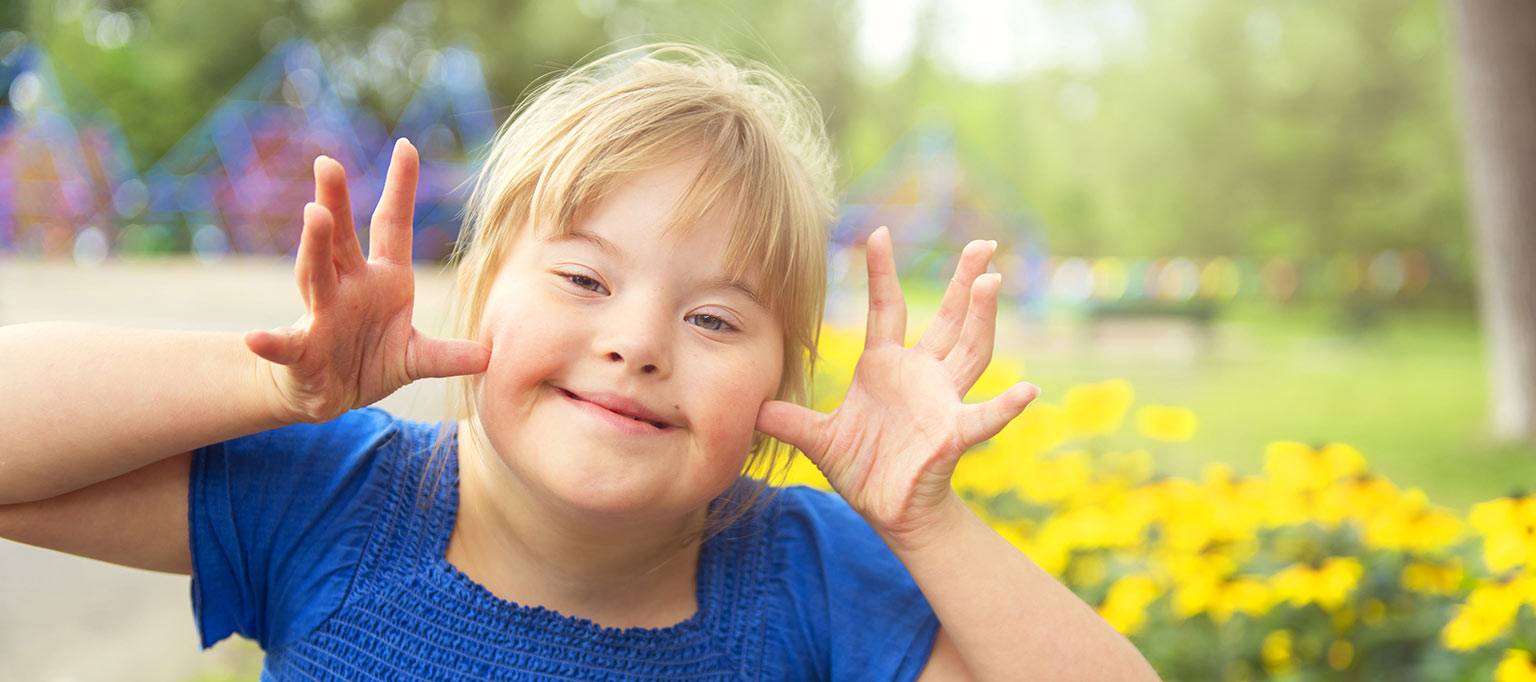Down Syndrome

Down syndrome (also known as Down’s syndrome) is a genetic condition which occurs by chance during the early stages of development in the womb. The biggest risk factor for having a baby with Down syndrome is advancing age of the mother.
There are three types of Down syndrome, the most common being ‘Trisomy 21’. This type is the result of each cell in the body having three copies of chromosome 21 instead of two copies.
The extra copies of chromosome 21 cause changes in how the body and brain develop, and children with Down syndrome have particular physical characteristics and cognitive (thinking/learning) limitations. Each child is a unique individual however, and there is a range in how they are affected.Common physical traits of Down syndrome:
- low muscle tone
- short neck
- flattened facial profile
- small head, ears and mouth
- upward slant to the eyes
- wide, short hands and fingers together with single palmar crease
- short stature
Common cognitive problems of Down syndrome:
- short attention span
- poor judgement
- impulsive behaviour
- learning difficulties
Childhood development in those with Down syndrome is affected in a variety of areas including gross motor (rolling, sitting, crawling, walking), fine motor (use of hands) together with speech, language and communication. They are also prone to hearing problems (glue ear) and be delayed in eating and drinking skills.
One strength however, is early social development, and children with Down syndrome are often very interested in relating to and engaging with other people. This characteristic can have a downside in that they may learn to use certain types of social behaviour (i.e. blowing raspberries) to distract from doing tasks which may be hard. In time this can lead to a personality/motivational style which is not always helpful and may cause an increased chance of displaying challenging behaviour in later years.
Early, targeted intervention and support from speech and language therapists, physiotherapists and occupational therapists is very important in helping each child to reach their best potential, and medical reviews by community paediatricians are also essential to identify, monitor and treat potential medical problems which may arise.
A number of advice and support groups are available for parents/carers of children with Down syndrome:
General information:
Positive About Down’s Syndrome
Early Support – Information About Down’s Syndrome
For a story book to share with your child about their condition please click here.
Physiotherapy advice:
Chartered Society of Physiotherapy – Down’s Syndrome Leaflet
Useful Links
Our Service Pages
Children’s Occupational Therapy Service
Children’s Physiotherapy Service